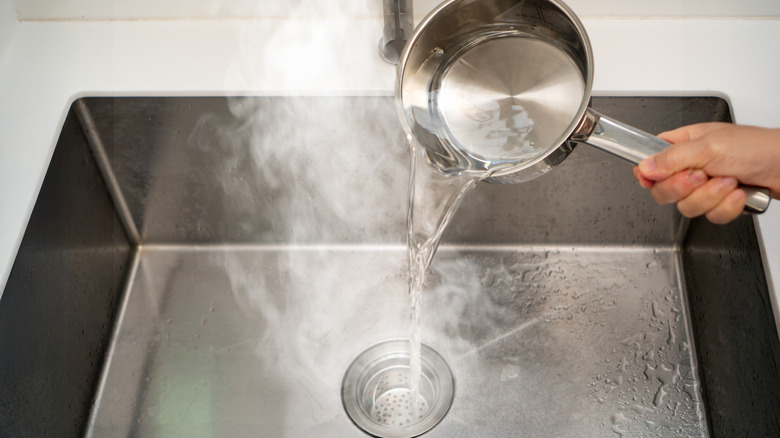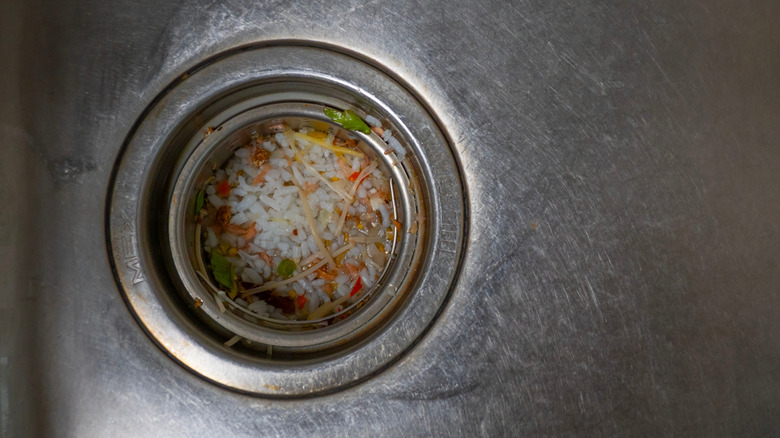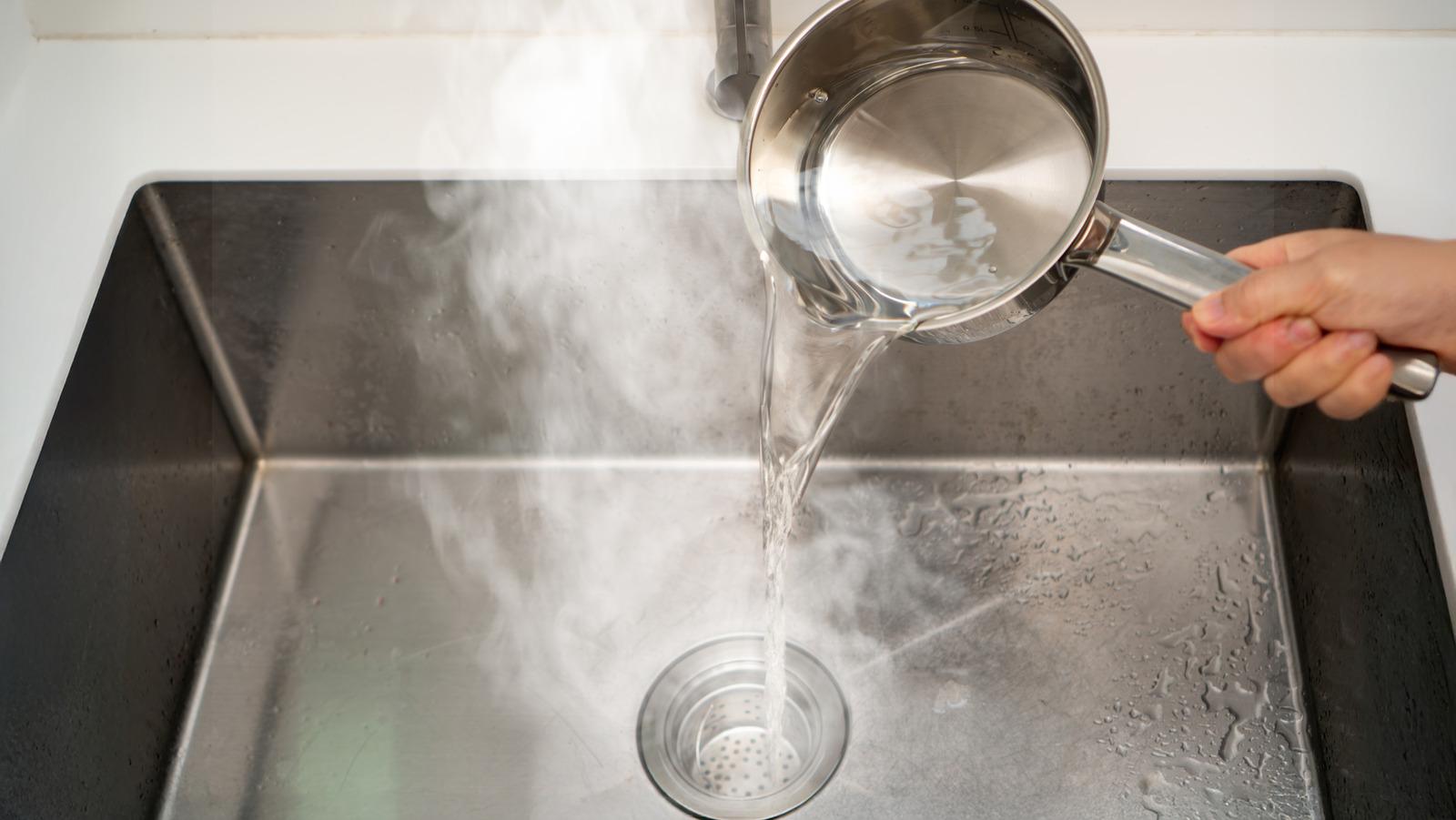
Toa55/Shutterstock
We may receive a commission on purchases made from links.
A clogged kitchen sink can be a major hassle, whether you're an everyday home cook or just rinsing off some dishes used for enjoying take-out. Food and other debris can collect in the pipe just enough to choke off any drainage, leaving you with a gross, foul-smelling pool of dirty wash water. It might be tempting to take immediate action through the use of a common but questionable technique: pouring boiling water down the drain. However, it's best to avoid this method for several reasons.
The most important reason is that boiling water simply doesn't work very well on most clogs. It's true that hot water can help loosen minor obstructions made of grease, hair, or soap scum, but serious blockages won't budge just because the water is boiling. In fact, it's much more likely to hurt your pipes than help them if you have typical PVC plumbing. The temperature of boiling water (212 degrees Fahrenheit) is close to the temperature at which PVC melts or softens, meaning boiling water sitting for extended periods behind a clog can lead to leaks down the road.
Better sink unclogging alternatives than boiling water

Runglawan Khrutjaikla/Shutterstock
Unfortunately, the boiling water hack isn't the only clog-related piece of home advice worth ignoring. Pouring salt down your drain at night won't prevent clogs, either. The salt-pouring method is likely based on the mistaken belief that the substance might be coarse enough to scour the insides of pipes, preventing buildup. Many also argue that you should never use drain cleaner in your kitchen sink, both for environmental and safety reasons.
With so many familiar unclogging practices debunked, what should frustrated folks do instead? There are numerous worthwhile methods, depending on the nature of the obstruction. These range from physically dislodging the debris with a plunger, snake, or wet-dry vac to experimenting in some home chemistry by combining baking soda and vinegar, which creates a foaming solution that attacks blockages as it's poured down the drain.
Prevention also goes a long way in fighting clogs. There are certain things you should never put down your drain for this exact reason, including flour, coffee grounds, and potato peels. Additionally, a simple and affordable addition like a mesh strainer that filters the water as it drains can prevent most larger food remnants from ever making it into the drain to begin with. If you are faced with a stubborn kitchen sink clog, don't bother with boiling water. You won't just be wasting your time; you might be doing real damage to your sink and plumbing, too.



